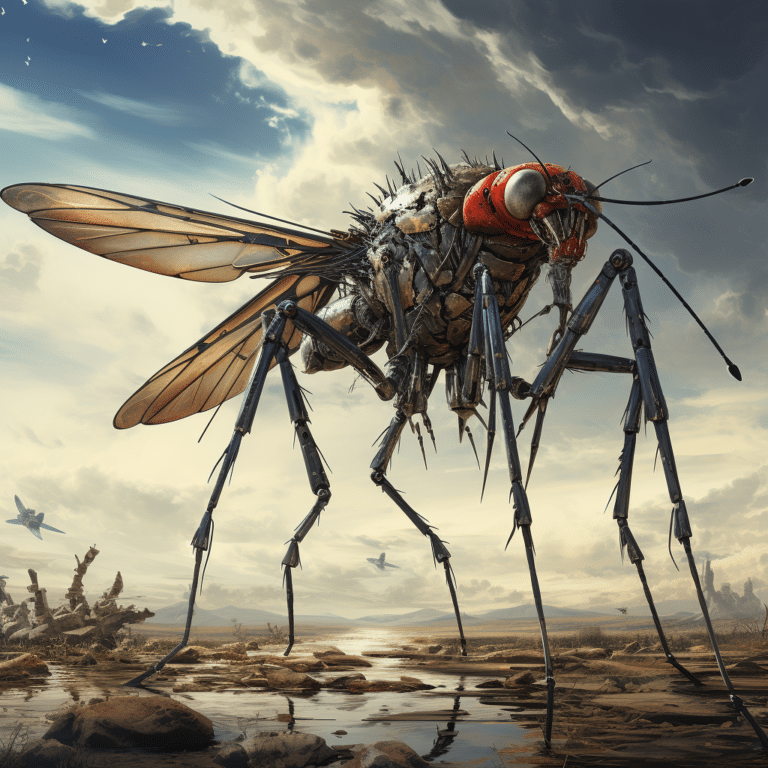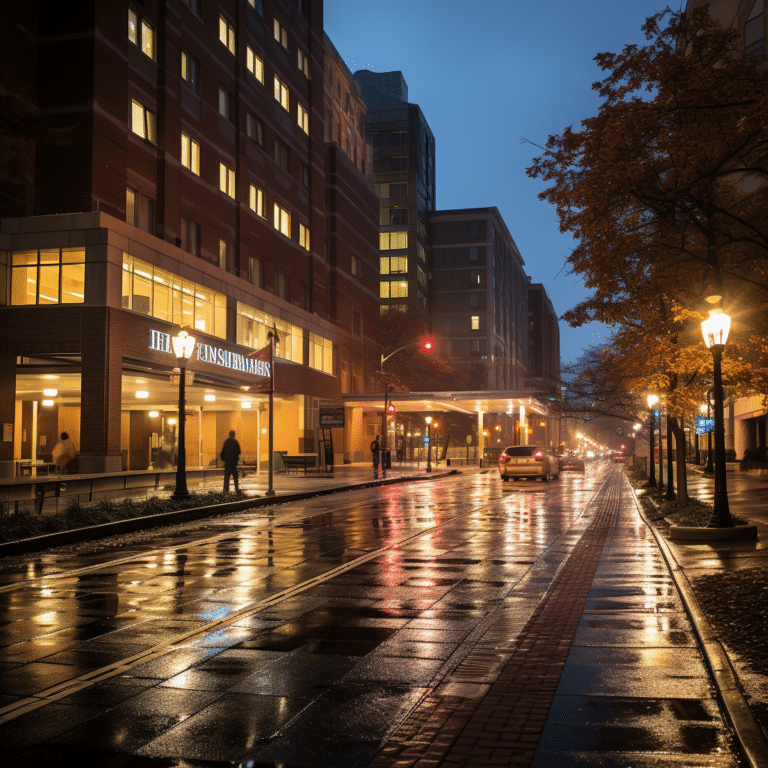Understanding the Baltimore City Water Parasite Problem
The recent reports of waterborne parasites in Baltimore City have everyone on edge. In 2023, traces of Cryptosporidium and Giardia surfaced in Baltimores’s tap water. The Baltimore City water parasite scare has captured the public’s attention and warranted immediate action. Here’s the lowdown on what’s happening, how it all started, and what’s being done.
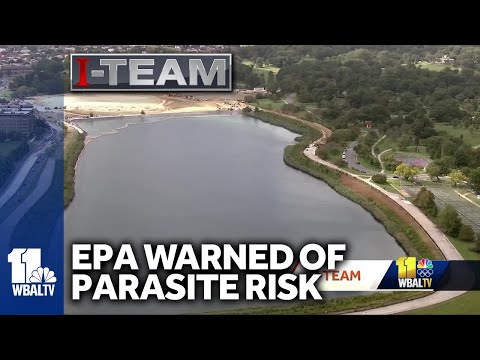
Historical Background: Past Episodes and the Present Crisis
Baltimore’s water has had its share of murky moments. The city previously faced a significant lead contamination problem in 2014, echoing the Flint crisis. Fast forward to 2024, a new menace—Cryptosporidium and Giardia—has cropped up. Unlike the lead issue, which primarily affected children and older infrastructure, the current parasite predicament targets a wider demographic and poses immediate health risks.
Comparison of Past Contaminations:
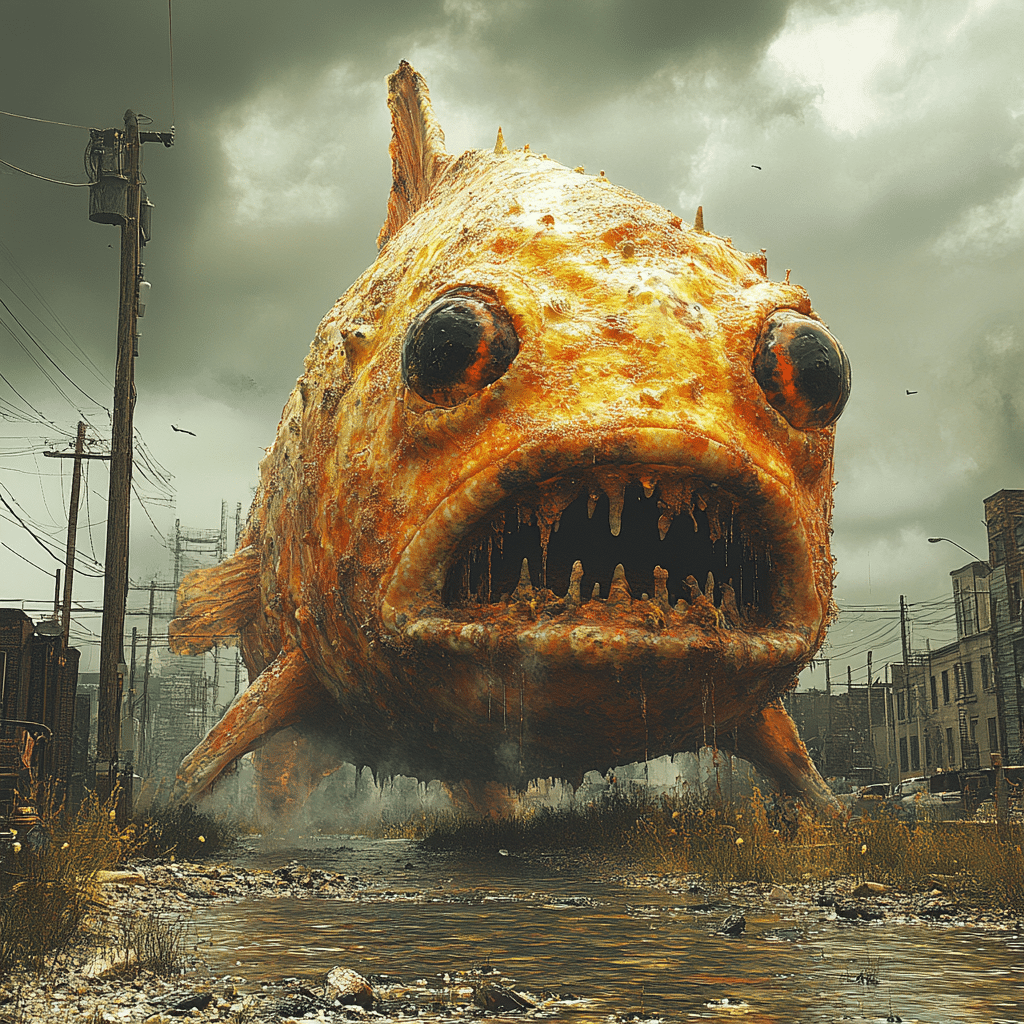
| Category | Details |
| Incident Overview | Positive detection of Cryptosporidium in Druid Lake Reservoir on September 19, 2023. |
| Parasite Name | Cryptosporidium (commonly known as “Crypto”) |
| Health Advisory | – Humans and animals infected shed the parasite in their stool (Source: Acting Health Commissioner Mary Beth Haller) |
| Initial Detection | Positive test on September 19, 2023 at Druid Lake Reservoir |
| Follow-Up Tests | Weekly sampling since the detection showed no additional detections of Cryptosporidium |
| Affected Areas | Initial impact areas of West Baltimore |
| Water Safety Status | Water remains safe for the general public to consume (Source: DPW and Health Commissioner) |
| Lead Contamination | |
| Preventive Measures | |
| Public Communication | DPW has communicated safety and conducted several rounds of water quality tests in impacted areas |
| Current Recommendation | Drinking water is safe for consumption based on latest testing results |
Scale of the Problem: Data and Statistics
The Environmental Protection Agency (EPA) report from 2023 reveals that roughly 0.7% of water samples in Baltimore City tested positive for Cryptosporidium, and a higher 1% had traces of Giardia. These numbers may look small, but in a city with a high population density, even minimal contamination can escalate quickly, leading to severe disease outbreaks.
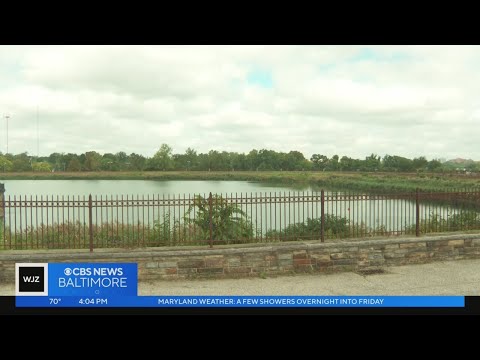
Health Risks and Symptoms
So, what does a Baltimore City water parasite mean for your health? Both Cryptosporidium and Giardia can wreak havoc on your gut:

Preventative Measures: What Baltimore Residents Should Do
The million-dollar question—how can you protect yourself from the Baltimore City water parasite? Don’t worry, we’ve got you:

The City’s Response: Actions Taken and Planned
Baltimore City isn’t just sitting back and lamenting. Here’s what DPW is doing about the Baltimore City water parasite:
Perspectives from Local Experts
Dr. Christine Lawson, a water safety expert at Johns Hopkins University, shared her insights: “While the rapid response is reassuring, long-term infrastructure upgrades are vital for a permanent fix.”
This doesn’t just mean quick fixes. Baltimore needs robust investments in water safety and resilience.
Community Impact: Real Stories from Residents
Real folks are feeling the strain. Tara Johnson, a local, spoke candidly about her family’s experience, saying, “My youngest son fell ill last month, and we didn’t know why until the parasite announcement was made. Ensuring we have boiled or bottled water for everyday use has been a real challenge.”
It’s clear—this isn’t just a theoretical problem. It’s affecting daily life.
The Road Ahead: Future Actions and Public Involvement
Sure, quick fixes are good. However, Baltimore City knows that sustained efforts are essential. The city plans to:
Community involvement is key. Vigilant residents who report health issues early can help contain any potential outbreak.
Final Thoughts: Innovation Amidst Crisis
Baltimore’s struggle with water parasites is another chapter in its ongoing story of resilience. This crisis underscores the need for innovation in water safety and infrastructure. But here’s the thing—Baltimore isn’t just reacting; it’s adapting and improving.
While we await solutions and upgrades, the collective effort demonstrates our capacity to face adversity head-on. These actions and the community’s vigilance make a compelling case for a brighter, safer future for Baltimore’s water supply.
By keeping informed and taking practical steps, everyone can help Baltimore emerge stronger. The fight against the Baltimore City water parasite is more than a battle for clean water—it’s a testament to the city’s enduring spirit and resolve.
Baltimore City Water Parasite Threat: What to Know
Living in Charm City means we sometimes face quirky issues, but the Baltimore city water parasite tops the list lately. It’s enough to make anyone think twice about turning on the tap. Let’s sift through some intriguing trivia and valuable nuggets about this concerning threat, mixed with a sprinkle of randomness to keep things interesting.
Oddities and Anomalies
First off, did you know that the parasite causing the stir, Cryptosporidium, isn’t just restricted to Baltimore? Cities across the globe face similar threats; in Sittingbourne, locals have had their own water quality issues. Enough to make anyone go, “Blimey!” But don’t let that freak you out just yet. Water treatment facilities, including those handling the Baltimore city water parasite, have robust protocols to catch these sneaky contaminants. Who knew the science behind this was as meticulous as maintaining a fleet of mantis Tillers?
Historical Tidbits
Interestingly, waterborne parasites aren’t a new phenomenon. They’ve been around, causing trouble and prompting action. With advances in technology and a keen eye on public health, we’ve come a long way since the days of waterborne diseases running rampant. It’s a bit like the advancement in sports — just look at the Bengals record 2022 for a clear example or the ever-evolving list of the best QBs in the NFL. Everything improves with time, including our fighting capabilities.
Quirky Connections
The Baltimore city water parasite scare even reminds me of other unexpected disruptions. Remember when Flights Grounded due to unforeseen events? It’s always perplexing how one issue can ripple out and affect so many aspects of life. Yet, we manage to navigate through the tightrope of challenges, much like how Emily Compagno’s husband supports her through the public eye’s scrutiny. It’s all about resilience and preparation.
All this fascinating trivia brings home one truth — our water supply’s safety is crucial, and staying informed is the best defense. So while you might be tempted to over think that glass of tap water next time you fill up, remember the layers of protection in place. And hey, if you ever feel the need for a fun trivia distraction, there’s always the story of how someone Kissed cat for luck and found it bafflingly effective!
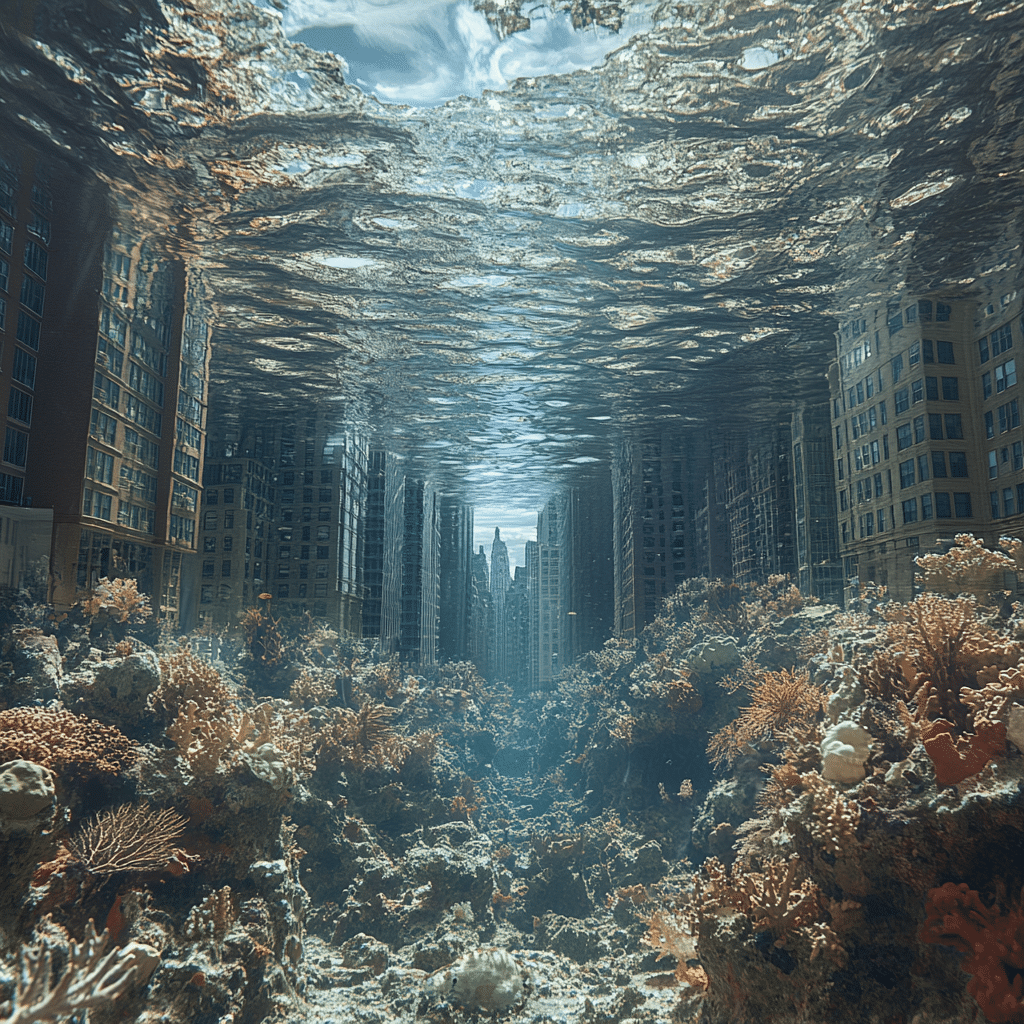
What is the parasite in the drinking water in Baltimore?
The parasite recently found in Baltimore’s drinking water is called Cryptosporidium, commonly known as “crypto.” It’s a microscopic organism that can cause gastrointestinal illness.
Is Baltimore City water safe to drink now?
Yes, Baltimore City water is currently safe to drink. Regular water quality tests confirm the absence of harmful contaminants, including Cryptosporidium, following the initial detection.
Is cryptosporidium still in Baltimore water?
No, Cryptosporidium is not currently present in Baltimore’s water. Weekly testing since the initial positive result in September has shown no further detections of the organism.
How did Baltimore City water get contaminated?
Baltimore City water got contaminated due to the presence of Cryptosporidium, which can be introduced into water through the feces of infected humans and animals.
Can parasites in water make you sick?
Yes, parasites in water can make you sick, often causing gastrointestinal issues like diarrhea, stomach cramps, and nausea.
What is the water parasite that kills people?
Cryptosporidium can cause severe illness but is generally not fatal. However, vulnerable populations, such as those with weakened immune systems, may face greater risks.
How clean is Baltimore City water?
Baltimore City water is quite clean, especially following rigorous and frequent testing that ensures it meets safety standards.
Can you shower in water contaminated with cryptosporidium?
Showering in water contaminated with Cryptosporidium is generally safe for most people because the risk of infection comes mainly from swallowing the water.
Is Baltimore water safe to bathe in?
Yes, Baltimore water is safe to bathe in even with the past detection of Cryptosporidium. The main concern is ingestion, not skin contact.
What kills Cryptosporidium in drinking water?
Boiling water is an effective method for killing Cryptosporidium in drinking water. Water should be brought to a rolling boil for one minute to ensure safety.
What areas of Baltimore have contaminated water?
Currently, no specific areas of Baltimore have been identified with ongoing water contamination. The initial impact areas in West Baltimore have been tested and confirmed safe.
How many people died from Cryptosporidium?
No deaths have been reported from the Cryptosporidium found in Baltimore’s water.
Can I drink tap water in Baltimore?
You can drink tap water in Baltimore. Ongoing tests have shown it is safe since the initial detection of Cryptosporidium.
What parasite was found in the Baltimore water?
Cryptosporidium, also known as “crypto,” was the parasite found in Baltimore’s water.
Is there E. coli in Baltimore City water?
There is no E. coli currently detected in Baltimore City water. It’s been thoroughly tested to ensure it’s safe.
What parasite is in the water in Maryland?
Cryptosporidium is the parasite that was recently found in Maryland’s water, specifically at the Druid Lake Reservoir in Baltimore.
What parasites are found in drinking water?
Common parasites found in drinking water include Cryptosporidium, Giardia, and, less frequently, others like Toxoplasma and certain types of worms.
What is the parasite in tap water?
Cryptosporidium is the parasite that was detected in tap water in Baltimore.
What is the new parasite found in water?
The new parasite found in Baltimore water is called Cryptosporidium, detected during routine sampling of the Druid Lake Reservoir.









